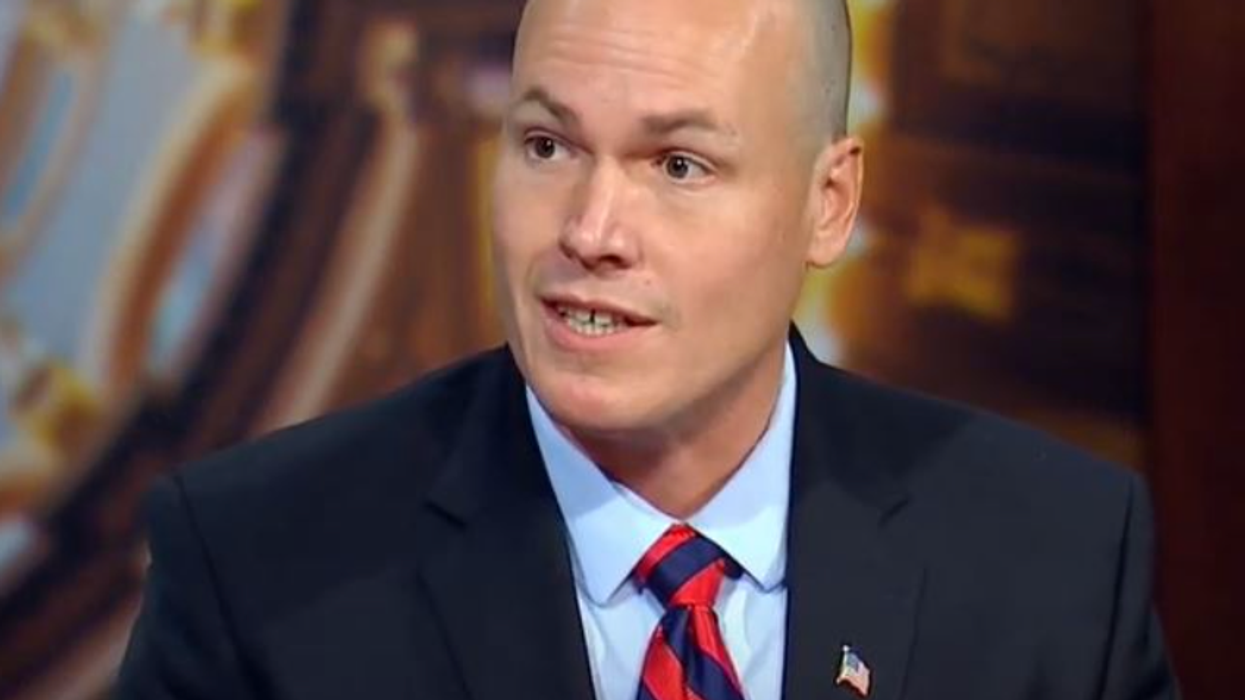Bannon Outlines MAGA Plan To Suppress Votes And Subvert 2026 Elections
War Room host and former Trump adviser Steve Bannon this week spelled out a vision of how MAGA media could attempt to subvert the 2026 midterm elections, including by advocating for the presence of Immigration and Customs Enforcement agents at polling places, extreme Congressional redistricting, and a mail-in voting ban.
Bannon’s proposed playbook is an evolution of the MAGA movement’s central ideological myth, which asserts that the 2020 election was stolen from President Donald Trump. This load-bearing fantasy supports any number of related policies, including MAGA media’s oft-repeated threat that every immigrant who came to the United States without authorization during the Biden administration must be deported.
It’s only a matter of time before election denial again becomes ubiquitous in right-wing media, as it did in the run-up to the 2022 midterms and prior to the 2024 general election. Beyond false claims about noncitizen voting, right-wing pundits also spread conspiracy theories in 2020 about Dominion voting machines and wrongly asserted that some votes had been flipped in 2024.
This history is key to understanding the moves that the Trump White House and MAGA media are making in anticipation of the 2026 midterms with the goal of cementing power through a host of anti-democratic means, including:
- Sending federal police, the National Guard, and Immigration and Customs Enforcement agents to occupy liberal cities like an invading army.
- Seeking to ban mail-in voting.
- Pushing for unprecedented, mid-decade Congressional redistricting efforts.
- Attempting to purge voter rolls and suppress turnout by requiring proof of citizenship to register to vote in federal elections.
- Calling for a mid-decade census that would exclude people in the United States without authorization, which experts have argued would be unconstitutional.
Bannon laid out MAGA media’s theory of the case during his Tuesday morning show.
The Trump administration must “get these elections squared away, for once and all,” Bannon said, adding, “No mail-in ballots.”
A day earlier, Trump posted on Truth Social that he would “lead a movement to get rid of MAIL-IN BALLOTS, and also, while we're at it, Highly 'Inaccurate,' Very Expensive, and Seriously Controversial VOTING MACHINES.” (Trump’s claim that voting machines are unreliable is false.)
Bannon then escalated his rhetoric, demanding that ICE agents enforce voter ID measures in cities throughout the country, seemingly without regard to local and state laws.
“They're petrified over at MSNBC and CNN that, hey, since we're taking control of the cities, there's going to be ICE officers near polling places,” Bannon said. “You damn right.”
“If you don't have an ID — if you're not a citizen — you're not voting,” he said.
Bannon’s threat is not idle, given the Trump administration’s posture toward some of the country’s biggest cities. In June, Trump deployed ICE agents to Los Angeles to carry out workplace raids, subsequently calling in the National Guard for additional repressive power. Then in August, Trump took over Washington’s local police department and surged federal police on the city’s streets. Once again, Trump sent in the National Guard; Republican governors lined up to provide their state’s troops to serve his ends. Trump has also threatened to deploy National Guard troops to New York City, Chicago, Baltimore, and Oakland, and has directed ICE to ramp up deportations in cities run by Democrats.
Some of Bannon’s allies have attempted to suppress voter turnout by monitoring ballot drop boxes and otherwise harassing election workers. Now, as the Trump administration prepares to hire an additional 10,000 ICE agents thanks to a newly passed Republican budget, Bannon’s demand that immigration cops stalk polling places doesn’t seem far-fetched.
Already, election denial activist Jenny Beth Martin and her group, Tea Party Patriots, are going on tour to promote the SAVE Act, an anti-voting rights bill that would require proof of citizenship to register to vote in federal elections. Martin’s group sponsored a rally on January 6, 2021, and in 2024 she bragged that she was helping to train poll watchers for the election that year.
In his Tuesday morning monologue, Bannon also called for a “maximalist policy” on redrawing Congressional maps ahead of next year’s midterms instead of waiting until the end of the decade for the completion of the census. Trump initiated the fight, calling for Texas to redraw its maps to produce five more Republican seats in the House of Representatives. Some Democratic governors have matched Trump’s gambit, saying they’ll attempt to do the same in their own states.
In addition to Texas, Bannon called for “Indiana, Missouri, South Carolina, Florida, [and] Ohio,” to create new Republican seats through extreme gerrymandering in order to protect Trump from possible impeachment should Democrats win back the House. Trump has “a lot more than a year and a half's worth of work left,” Bannon said. “He's got more than this term and beyond.”
Bannon reiterated his threats on Wednesday, tying them explicitly to the midterms.
“Remember, for 2026, the mid-decade census that has to be right this time,” Bannon said. “No illegal aliens. You’ve got to get the algorithms right. And the collection — all the mistakes that we had. Also, the redistricting.”
“The last is the mail-in ballots,” Bannon said.
“And the left is sitting there going, well gosh, they take away mail-in ballots, people are going to have to show up, they’re going to have ICE agents around, people are going to be so afraid, intimidated, they’re going to be arrested,” Bannon added. “Well, hey, if you’re an illegal alien you shouldn’t be going to the polls anyway.”
On Wednesday, the Texas House passed a new redistricting map expected to yield an additional five Republican seats. Trump celebrated the result in a post on Truth Social, adding that if Republicans “STOP MAIL-IN VOTING” and “go to PAPER BALLOTS,” Republicans will “will pick up 100 more seats, and the CROOKED game of politics is over.”
The MAGA movement’s attacks on immigrants, voting rights, and cities they don’t control are all attempts to further entrench Trump’s political power and eliminate any possible checks or balances on it. Right-wing media figures are salivating at the opportunity to punish their opponents. It’s incumbent on legacy media to tell the whole story and draw these connections. After all, Bannon and his fellow travelers in MAGA media are very open about their playbook.
Reprinted with permission from Media Matters.












